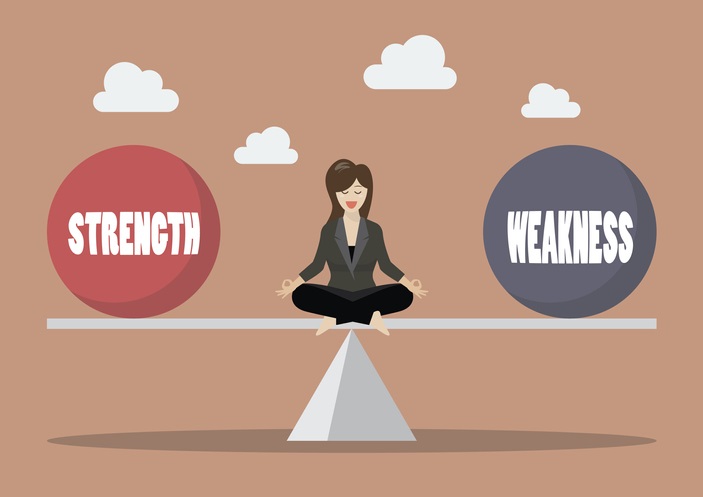
As far back as 300 AD, the ancients wrote of a “philosopher’s stone” that could transmute base metal into gold. Well, I can’t tell you how to spin gold from tin but I can offer some guidance on how to make your weaknesses less relevant, perhaps even how to transform a weakness into strength.
Folks, I’ve been blessed beyond measure in my life, both materially and emotionally. And yet I’ve got a list of my Top Five failures that I share when I teach leadership and they are some doozies. And that is just the failures of commission, I’ve got another list of failures of omission. On top of that I’ve got a litany of weaknesses I reveal: I tend to start things and lose interest, I’m bi-polar, moody, with symptoms of dyslexia and ADHA. I’m obsessive/compulsive with fears of abandonment. Plus I can be intense at times (ok, others might say I have a temper, a tendency to be short with people and not listen well.)
I chose rental real estate in part because of its steady nature; in my early 30’s my bipolar mood swings were such that I was reluctant to do new development due to the high-risk exposure; if I were to wander off in a blue funk in the middle of a construction project, the consequences could be dire. Winston Churchill called his depression episodes “Black Dogs”; to me it was a heavy dark blanket that descended over me, sucking out all my energy like some cosmic black hole.
Now some will say I can admit to weaknesses and failures because I’m the boss, the owner of the company. But that gets the causation backwards: My success is due to my acknowledging my weaknesses, being open and up front about them, authentic about who I am and what to expect. If you need the beaches taken, I’m your man. If you need nation building, I’ll send my CEO; that’s her forte, not mine.
To be clear, I did NOT ignore my weakness. Where feasible, I might try to raise my “D” level to a C or even a B-. More often, I’d realize where I was not in my element and ask for help while continuing to monitor the process and retaining ultimate responsibility for the final outcome. Delegation is not abdication!
I owe much of my success in life to the incredible organization that I’m fortunate enough to work with daily and yet I built that organization because I knew my weaknesses, knew I needed help. If I tried to be perfect, to do it all myself, to not let go of the rung below to grasp the run above… well, I’m sure I would’ve done well but nowhere near where I am today. For that I thank my weakness and the awareness to go ask for help… and find others who could do it better!
Closing Quotes:
“You don’t have to be perfect to be perfectly okay.” – NSC
“Success is achieved by developing our strengths, not by eliminating our weaknesses.” – Marilyn vos Savant, b. 1946, listed as highest recorded IQ per Guinness Book of Records
“In most cases, strengths and weaknesses are two sides of the same coin. A strength in one situation is a weakness in another, yet often the person can’t switch gears. It’s a very subtle thing to talk about strengths and weaknesses because almost always they’re the same thing.” – Steve Jobs, 1955-2011
Footnote: ADHA stands for “Attention Deficit, Hyper Active” which is my personal invention, dropping the “Disorder” from the standard term ADHD: Attention Deficit Hyperactivity Disorder; I don’t see my Hyper Activeness as something wrong with me v. as me being fortunate enough to possess a very special, unique, and in some ways wonderful type of energy that needs to be managed/directed. That said, it did take a while and a fair amount of Cognitive Behavior Therapy (CBT) get it under control! : ) I’m also compelled to mention that a high percentage of CBT is social science term for a well packaged blend of heightened self-awareness (often enabled by journaling), enlightened traditional self-discipline with a bit of goal setting and focused practice and coached feedback i.e. therapy thrown in. But it works! And if calling it CBT gets folks to try it, so be it.
As always, I share what I most want and need to learn. – Nathan S. Collier

